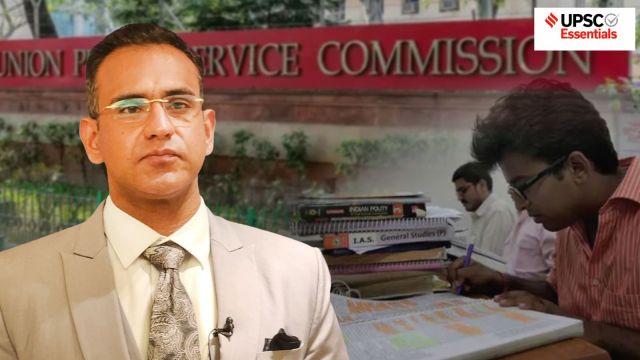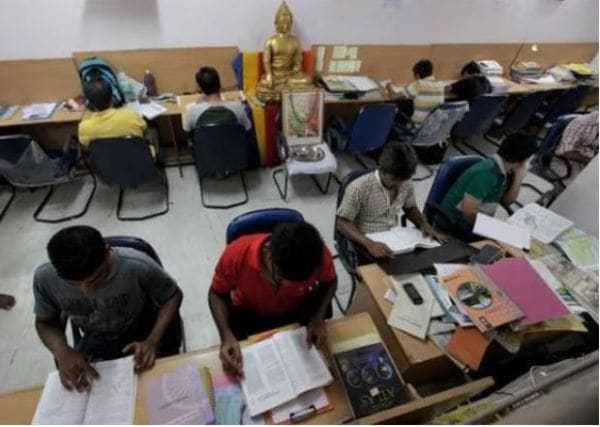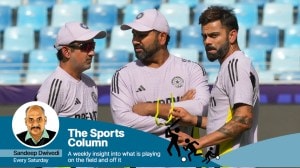
About the Expert: Ravi Kapoor is an ex-IRS officer. Through a free mentorship programme, he integrates tailored educational materials, psychological principles, visual learning techniques, and a strong emphasis on mental well-being into his teaching skills granting aspirants a chance to learn from his expertise.
Manas: How India reacts to UPSC results and its toppers?
Ravi Kapoor: The UPSC result came this year with the same hype as it does every year. For most people, it is the spectacle of a lifetime as they watch some common citizens transcend common citizenry to become exalted officers – primed and poised with the power and influence that will surely follow. Social media abounds with hurrahs and hero-worship of the chosen few whose lives will never be the same. Everyone in the country starts talking about them. Many start role modeling them and there will be a huge fan following. Children will be encouraged to learn from their lives and India will like to know about their backgrounds. Media will count the number of women candidates among the toppers and inspirations will flow from the stories of struggle journeys.
This is how India reacts to UPSC results every year. This year it isn’t different, only the toppers list has changed. Sixteen of my mentees made it to the merit list too and it is a happy moment, no doubt. Teachers and mentors will find their real rewards in finding their students’ names in the final merit list. But there’s much more to the story than meets the eye.
Manas: So, what is the reason behind such a reaction for UPSC toppers?
Ravi Kapoor: The answer lies in the following question – why is India obsessed with UPSC toppers? Our society worships this spectacle because it makes people feel like it could just as well have been them in the spotlight. If only they had the means or the motivation to undergo the tiresome UPSC journey, they could clear the UPSC exam too.
Little do they know that what they are wishing upon themselves is chronic anxiety, insomnia, and pain because that’s what it feels like to be one insignificant individual in the middle of millions fighting for a sliver of hope in the trenches of one of the world’s toughest exams.
Story continues below this ad
The truth is that most people do not have a fraction of the motivation or determination required to clear the UPSC Exam, and that is perfectly fine. Not everyone needs to clear the UPSC exam to become successful and live their dream.
Manas: Why does our society see them as ‘different’ than others?
Ravi Kapoor: It is important to reiterate a very important fact about these candidates who actually put themselves through this treadmill of an exam, year after year. The vast knowledge they accumulate is a different story altogether, especially those who qualify for the Mains exam.
These people are amongst the best of us in my opinion. That is because they possess a very rare quality — courage.
One requires faith and courage to push through a challenge that is most likely to fail. UPSC aspirants become ‘UPSC Aspirants’ only for irrational reasons — because no one in their rational minds would consider it a bet worth taking given that the odds of success are 1 in 10000. Both faith and courage are defined by an irrational defiance in the face of a challenge.
However, faith and courage are not enough to get the job done. degree of intellegence and genral awareness, i.e. a mind that possesses a multitude of cognitive skills — reading, comprehension, writing, articulation, memorisation, association, and lateral thinking at high levels.
Story continues below this ad
A veteran UPSC aspirant may not look it, but he/she is a formidable intellectual acrobat.
Manas: But not all UPSC Aspirants qualify for Civil Services. What about the stories of those who came so close to their aim but couldn’t make it to fame?
Ravi Kapoor: This is an untold story of struggle, something which you will rarely find on social media or social anecdotes. Everyone who has qualified the Mains exam, is by default someone who is highly intelligent, hardworking, brave, and determined. Almost all of them would make good civil servants if given the chance. But there is space only for a few hundreds and so, every year, the ones who don’t make it to the UPSC merit list, feel pain beyond measure. ‘To come so close, only to start again from scratch.’
Imagine what it would feel like to lose something you have manifested into existence every single day and night — only to lose it when it was almost there.
 Many of the aspirants have spent hours preparing in ‘libraries’ in the Capital’s Old Rajender Nagar. Little more than rooms with chairs and desks, they are the spaces that provide them comfort in their search for a level playing field. Ravi Kapoor writes, “This is an untold story of struggle, something which you will rarely find on social media or social anecdotes.” (Source: Express Photo by Ravi Kanojia)
Many of the aspirants have spent hours preparing in ‘libraries’ in the Capital’s Old Rajender Nagar. Little more than rooms with chairs and desks, they are the spaces that provide them comfort in their search for a level playing field. Ravi Kapoor writes, “This is an untold story of struggle, something which you will rarely find on social media or social anecdotes.” (Source: Express Photo by Ravi Kanojia)
UPSC aspirants who are rejected at the final stage are sometimes deeply traumatized. They face a terrible choice — either to give up their dream or to face another year of uncertainty and pain.
Story continues below this ad
In the aftermath of the UPSC result, they must absorb the shock of their broken dream — silent and alone. And to think that just after a few days, most of them come out of it after a period of healing, stoic and steadfast — ready for another round.
This is the story of the brutal nature of the UPSC exam, and the courage of those who seek it.
Manas: So, how should we interpret the UPSC results?
Ravi Kapoor: My advice to all aspirants is that when you see the celebration, temper it with a healthy dose of reality. For every UPSC topper you see on social media, remember that 3 other candidates were nearly as good but didn’t make it. Know that if you undertake the journey, it will be painful. Ask yourself why and if you want this to be your sole goal. If the answer is still yes, then jump in and give it everything you have.
A Clarion call to the Corporate World: The calibre of grit, intellect, and unwavering commitment exhibited by UPSC aspirants sets a benchmark few can match. These individuals have not simply stumbled at a hurdle; they are the undiscovered gems of leadership, innovation, and problem-solving. Having navigated the labyrinth of one of the world’s most challenging examinations, they emerge not defeated, but seasoned, ready to tackle real-world problems with finesse and strategy. The corporate sector stands on the brink of a unique opportunity to harness this vast, yet undervalued reservoir of talent. The moment has come to shift our gaze, to recognize the profound capabilities of these aspirants, and to integrate them into our ecosystems where they can flourish to their fullest potential. Their odyssey through the UPSC examination is more than a story of endurance; it’s a glowing testament to their extraordinary capabilities.
Let’s not allow the depth of their brilliance to be shadowed by the narrow outcome of a singular assessment.
For your answers, queries and suggestions write at manas.srivastava@indianexpress.com
Subscribe to our UPSC newsletter and stay updated with the news cues from the past week.
Story continues below this ad
Stay updated with the latest UPSC articles by joining our Telegram channel – IndianExpress UPSC Hub, and follow us on Instagram and X.



 Many of the aspirants have spent hours preparing in ‘libraries’ in the Capital’s Old Rajender Nagar. Little more than rooms with chairs and desks, they are the spaces that provide them comfort in their search for a level playing field. Ravi Kapoor writes, “This is an untold story of struggle, something which you will rarely find on social media or social anecdotes.” (Source: Express Photo by Ravi Kanojia)
Many of the aspirants have spent hours preparing in ‘libraries’ in the Capital’s Old Rajender Nagar. Little more than rooms with chairs and desks, they are the spaces that provide them comfort in their search for a level playing field. Ravi Kapoor writes, “This is an untold story of struggle, something which you will rarely find on social media or social anecdotes.” (Source: Express Photo by Ravi Kanojia)






























